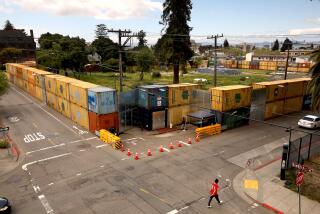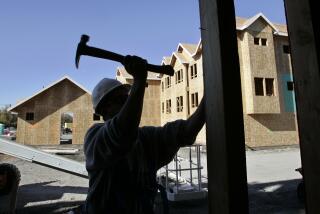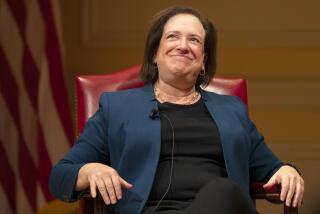New California legislation would make it easier to build projects that meet climate goals. But environmentalists don’t like it

A new bill from a Bay Area lawmaker aims to give breaks under the state’s environmental law to transportation projects that are part of a region’s approved plan to combat climate change. But major environmental groups say the legislation goes too fa
A Bay Area lawmaker wants to knock down what he believes is a key barrier to California meeting its ambitious climate change goals: one of the state’s most prominent environmental laws.
Assemblyman Tim Grayson (D-Concord) has introduced legislation that aims to make it harder for lawsuits filed under the California Environmental Quality Act, or CEQA, to stop construction of roads and public transit.
CEQA requires developers and public agencies to disclose a project’s environmental effects and take steps to reduce or eliminate them. But Grayson says the law can grind to a halt transportation projects that are needed to reduce the amount of cars on the road.
His legislation, Assembly Bill 1905, would make it easier for road or transit projects included in a state-approved regional growth plan to begin construction before any CEQA litigation is resolved.
Since state climate regulators will have already signed off on those road and transit projects when approving a region’s growth plan, the projects shouldn’t face multiple threats of environmental litigation, Grayson argues.
“What I’m looking at is how do we cut down on traffic congestion where we’re just spilling greenhouse gases, creating clouds of greenhouse gases and impacting the environment negatively,” Grayson said.
But Grayson’s approach is already attracting concerns from high-profile environmental organizations. Environmental groups often credit CEQA, which took effect in 1970, with preserving California’s natural beauty, and argue it is complementary — not contrary — to the more recent climate change laws.
A court should rule in a CEQA lawsuit before construction starts, said Kyle Jones, a policy advocate for Sierra Club California.
“It just seems prudent that you’ve gotten all your legal barriers out of the way,” Jones said.
California has many laws that force private developers and public agencies to examine the environmental impacts of their housing, commercial, industrial and transportation plans and projects.
In 2008, the state Legislature began requiring regional governments, including the Southern California Assn. of Governments, to draw up plans to accommodate population growth and reduce greenhouse gases with proposals for new housing and transportation primarily in already developed areas. The goal is to reduce sprawl and emissions from long commutes. Regional governments are now revising their plans to comply with the state’s new aggressive targets to cut carbon emissions by 40% of 1990 levels by 2030.
But actual growth doesn’t have to follow the plans, and individual projects can stall for many reasons, including environmental litigation. Under Grayson’s bill, however, any road, transit or other transportation project included in an approved regional climate plan would receive relief in potential CEQA lawsuits.
Currently, a court can stop construction on a project if the judge finds its required CEQA analysis failed to account for all effects on the environment. Under Grayson’s bill, a court could do so only if the project was found to have serious life or safety risks.
State lawmakers have approved this legal standard before to speed the development of a new Sacramento Kings basketball arena. Those rules weren’t tested in a lawsuit against the arena. But state and local officials have said the legal standard allowed construction to go forward without fear of litigation tying up the project and potentially costing the city the team.
In Los Angeles, Grayson’s bill could affect large road and transit projects including a Metro Gold Line extension into eastern Los Angeles County and tunnels through the Sepulveda Pass.
But Sierra Club California and the Natural Resources Defense Council are among the environmental organizations that believe the bill goes too far. State climate regulators don’t heavily scrutinize individual projects when approving regional growth plans, representatives of both groups said.
For instance, a judge might find that a transportation project’s environmental review didn’t account for all the effects the development could have on air quality, but under AB 1905 that judge couldn’t stop the project because of it, said David Pettit, a senior attorney with the Natural Resources Defense Council. Without the threat of halting construction, agencies won’t need to take seriously any subsequent demands to improve the air surrounding the project, he said.
AB 1905 “may look good on its face, but it’s fantastically unrealistic when you look at the effects of when concrete is already in the ground,” Pettit said.
Grayson said the inspiration for his bill came from the California Transportation Commission, a state agency that advises Gov. Jerry Brown and the Legislature on transportation policy and spending. In its most recent annual report, the commission recommended an idea similar to Grayson’s bill as a way to speed up project construction.
The recently passed gas tax and other fee increases are expected to bring in more than $5 billion annually for road repairs and mass transit upgrades. Grayson said it’s important to spend that money quickly, and making it easier to defend against CEQA lawsuits is one way to do it.
“If we’re ever going to make a huge impact it is going to be now with the amount of revenue at our disposal,” he said.
ALSO
Lawmakers have put a lot of energy into getting new stadiums built — without much success
Updates on California politics
More to Read
Get the L.A. Times Politics newsletter
Deeply reported insights into legislation, politics and policy from Sacramento, Washington and beyond. In your inbox three times per week.
You may occasionally receive promotional content from the Los Angeles Times.











